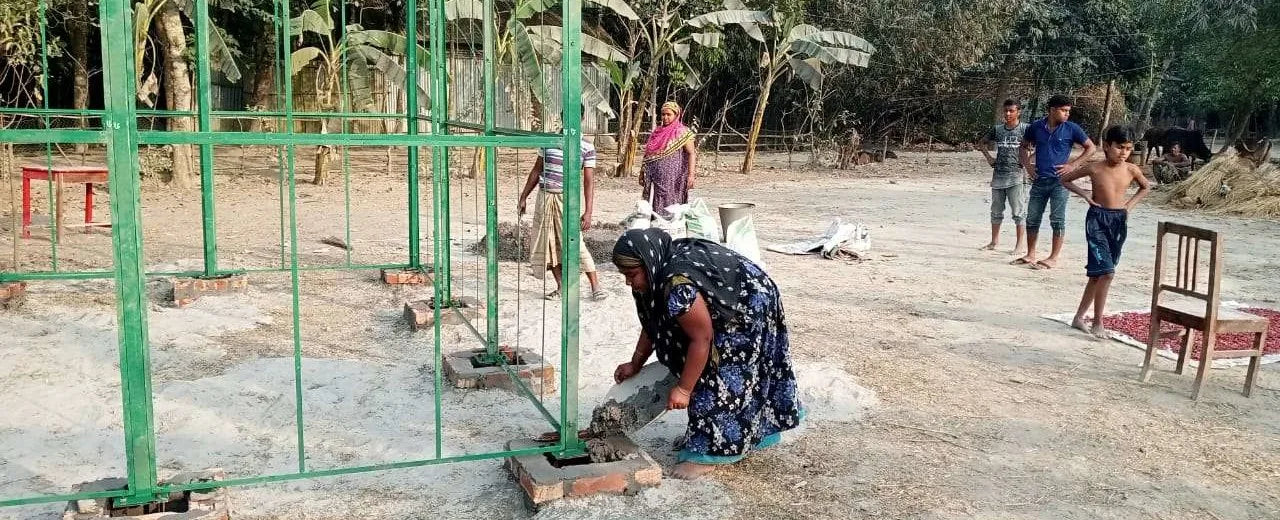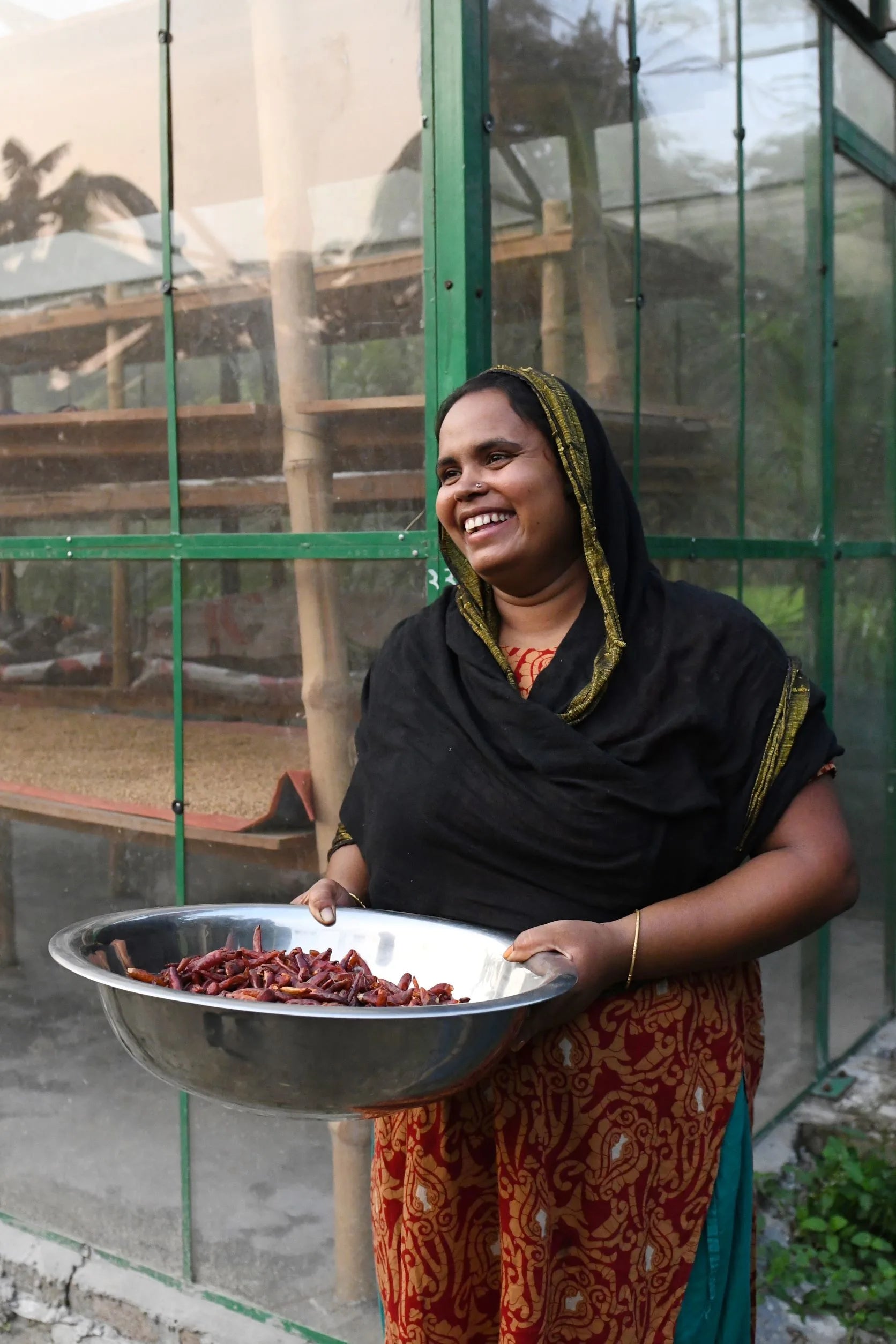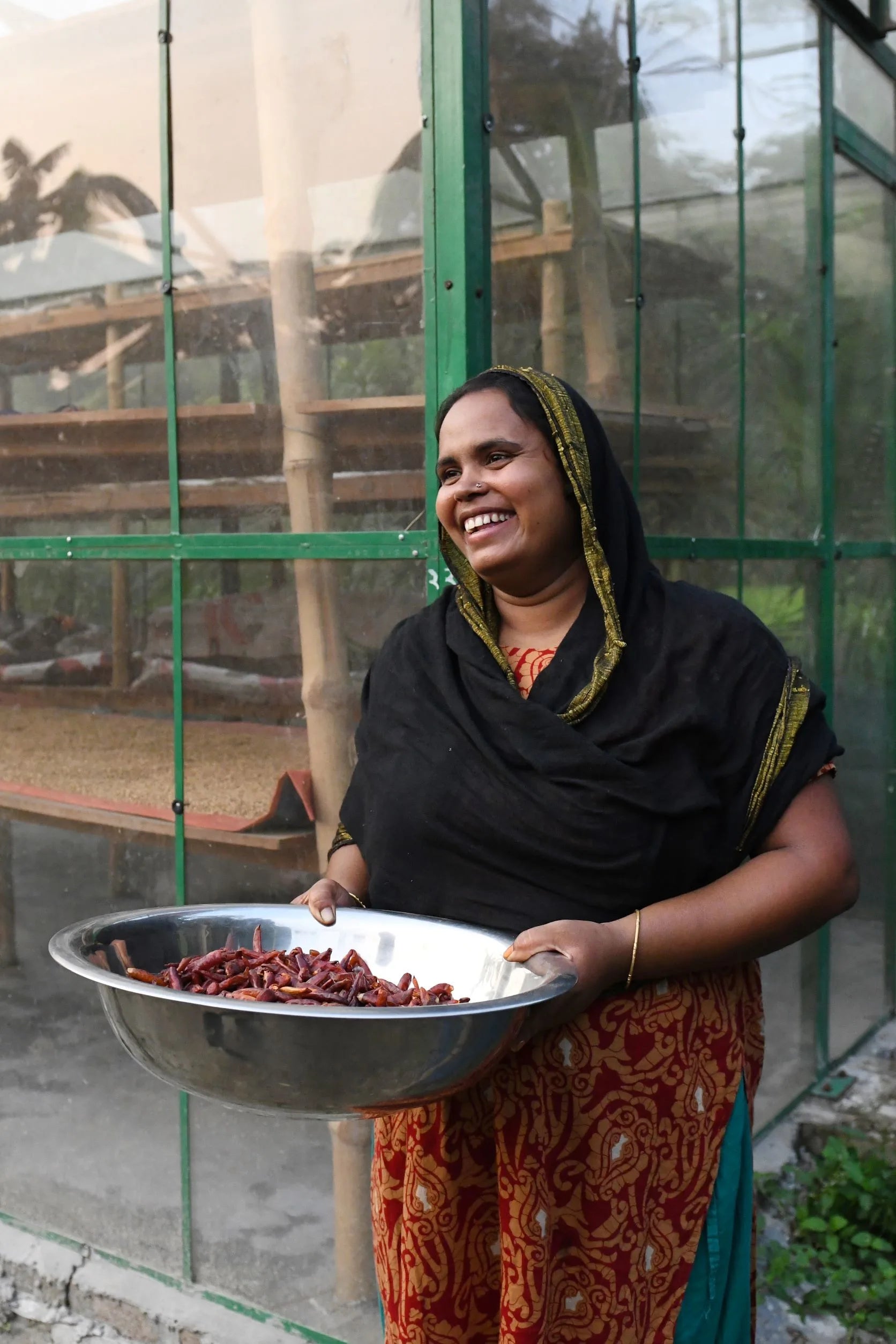Day 18
1 m³ storage space for the harvest of a farming family in Bangladesh
 Rice and Co.: everything under one roof! Rice and Co.: everything under one roof!
Rice and Co.: everything under one roof! Rice and Co.: everything under one roof!


Reap the fruits of your own labor

Anna Bader presents her favorite project
need
Self-managed storage facilities for smallholder farmers’ harvests in Bangladesh
activity
Local NGO provides small farmers' cooperatives with building materials for warehouses
Measurable performance
Number of smallholder families who use 4 warehouses of different sizes in cooperatives and thus reduce their dependence on large landowners
Result
At least 218 families improve their nutritional situation and increase their income
Systemically relevant impact
Greater food security for smallholder farmers and fairer trade conditions in rural Bangladesh
background


The good deed
About Bangladesh
Dhaka
Capital city
171,186,372
Population
2,688.3
Gross domestic product
per capita per year
0.661
Human Development Index
(Human Development Index)



